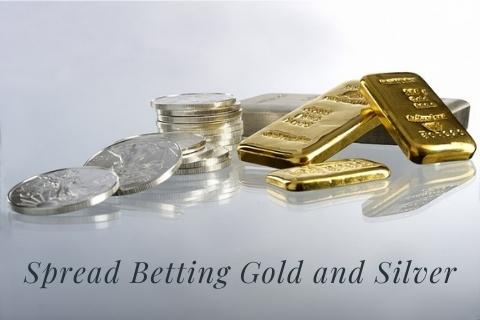Perhaps the most well known commodity classification for traders and spread bettors alike is precious metals, most notably gold and silver, which have for decades been the safe haven from which traders take shelter in tough financial times. In fact, financial spread betting was invented to give traders the chance to speculate on gold markets in a means other than direct investing.
As a traditionally in-demand commodity classification, precious metal prices tend to remain strong as a hedge against inflationary pressures and market volatility, providing the ideal opportunity for traders to scalp sharp profits when other investment opportunities start to falter.
Why Spread Bet on Precious Metals?

Recommended Silver & Gold Spread Betting Brokers


These companies are best suited for spread betting precious metals. Top spread betting companies compared.
Who Trades Precious Metals?
Precious metals are traded by a variety of investors, from large scale speculators to governments. We’ve broken down the main broad types of gold investors.
1. High Net Worth Individuals and Funds: Funds and portfolio investors who relish diversification in their trading tend to be heavily into gold investment. While largely this tends to take the form of actual physical gold, many high net worth individuals and fund managers are turning to spread betting as a more tax efficient means of capitalising on the value of precious metals.
2. Governments and Banks: Similarly, governments and banks have a vast amount of investing to do, and so seek to diversify their portfolios as widely as possible in order to spread risk and minimise their potential for losses. For banks and other tax paying investors, the liability of capital gains on precious metal disposals can wipe out much of the profit potential, thus spread betting on the gold and metal markets is an effective means of reducing tax liability whilst maximising gains.
3. Individual Traders: Thirdly, private, individual traders choose precious metals as a basis for their spread betting on the belief that they can capitalise on the comparatively larger and less dynamic movements of investors in the other two camps. When the stock markets quiver, the fear of loss amongst these larger investors almost inevitably drives up gold prices, and as such leads to the significant profit potential private investors seek.
How To Trade Precious Metals Effectively?
The key to trading gold and other precious metals is to notice how they interact with poor stock market, economic and currency indicators. Generally speaking, when the big markets look to be set for a turmoil, the price of precious metals will increase, and so the trick to successful trading lies in being able to interpret when stock markets will respond negatively to a particular economic announcement or event.
Because spread betting is a short-term trading medium and gold tends to move in longer term cycles, most opportunities for profitability lie in finding price discrepancies between gold and market announcements. That means acting quickly, and jumping on the spread market when you think a price correction is overdue. Again, as with all commodities, precious metals respond to supply and demand, and when they are in demand as an investment products, prices will certainly rise.

